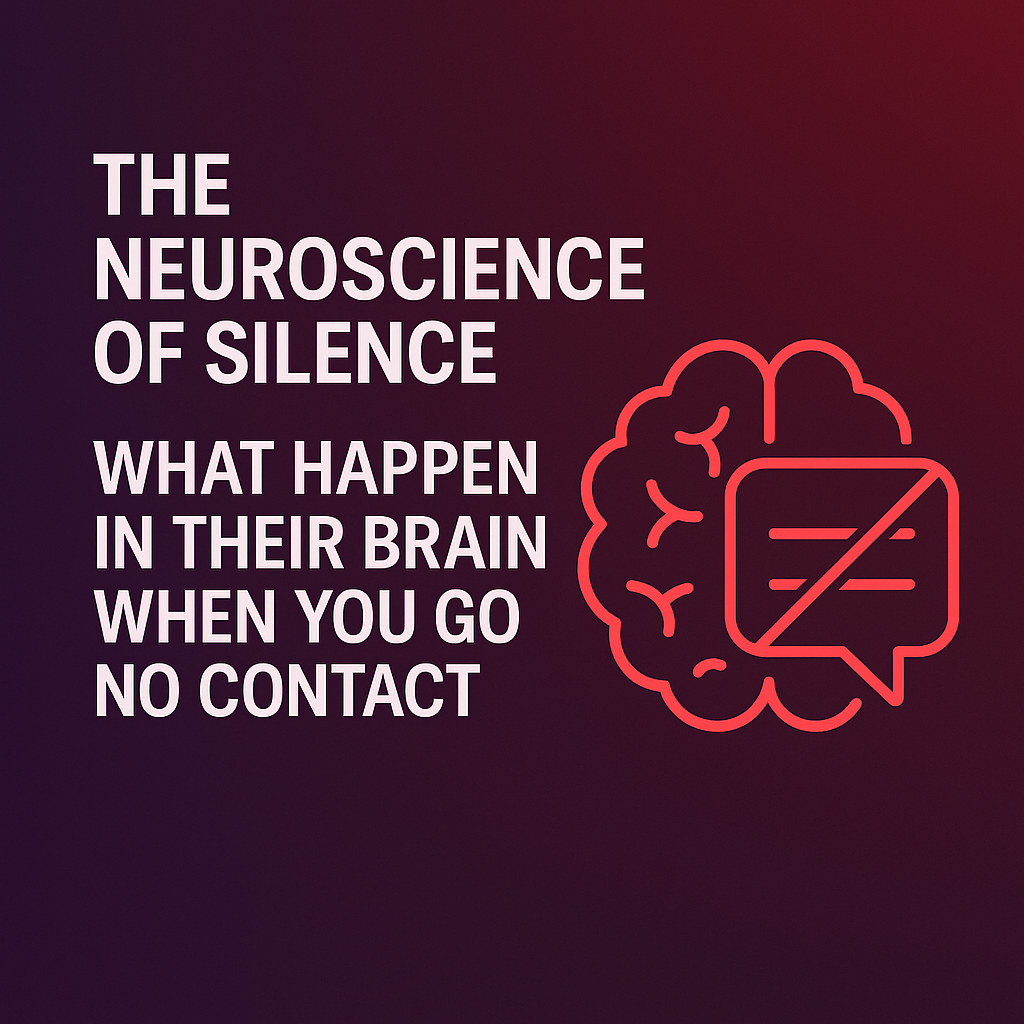The Neuroscience of Silence: What Happens in Their Brain When You Go No Contact

You've probably heard that no contact is for you — and that's true. But here's the twist: it also changes their brain. The psychology of no contact isn't about playing games; it's about letting both nervous systems detach from a cycle of reward, withdrawal, and emotional dependency.
At CTRL+ALT+BLOCK, we use Daily Check-ins, No-Contact Streaks, Daily Rituals, AI Therapy, and the Wall of Wounds to help you stay consistent long enough for these neurological shifts to actually happen.
How Brain Science No Contact Really Works
1. You Interrupt Their Dopamine Loop
When someone's used to instant access to you, your replies trigger their dopamine release — the brain's "feel good" chemical. No contact stops feeding that loop, which forces their brain to adapt. This is core to understanding what happens in their brain no contact.
Platform tip: Your No-Contact Streak keeps you focused on your own loop — self-respect instead of instant response.
2. You Trigger Uncertainty and Reassessment
Inconsistent access makes the brain work harder to predict outcomes, often leading to increased attention toward the missing stimulus — you. This neuroscience breakup principle explains why silence can be more powerful than words.
Platform tip: Use Daily Check-ins to track your own emotions when curiosity about their thoughts creeps in.
3. You Give Space for Memory Reconsolidation
Over time, their brain reprocesses relationship memories without the reinforcement of your presence. This can shift how they perceive the breakup and their role in it. The psychology of no contact leverages this natural neural process.
Platform tip: Post your milestones or reflections on the Wall of Wounds to see how others have experienced similar shifts.
4. You Shift the Power of Attention
Humans are wired to focus on what they can't easily have. Silence can flip the mental script, placing you in the position of scarcity. This aspect of how no contact affects them taps into basic human psychology.
Platform tip: When tempted to "break silence," open AI Therapy and talk through what you hope their reaction would be — you may realize it's not worth the risk.
5. You Protect Your Own Neurology
While their brain adapts, so does yours — neural pathways tied to them weaken, making it easier to think clearly. This dual brain science no contact effect benefits both parties in the long run.
Platform tip: Fill those rewired circuits with Daily Rituals — new hobbies, self-care tasks, and micro-wins that make your brain crave your own growth.
The Neuroscience Timeline: What to Expect
Week 1-2: Initial Withdrawal
- •Their brain craves the dopamine hit from your responses
- •Increased checking behaviors (social media, mutual friends)
- •Anxiety response from uncertainty
Week 3-6: Adaptation Phase
- •Brain begins adapting to absence of reward
- •Memory reconsolidation starts affecting perception
- •Possible increase in valuation due to scarcity principle
2+ Months: Neural Reorganization
- •New neural pathways form around your absence
- •Their emotional dependency begins to weaken
- •Clearer perspective on relationship dynamics emerges
Real Science, Real Results
"I didn't believe in the neuroscience stuff until I saw it happen. After 8 weeks of no contact, he reached out with a completely different energy — reflective, accountable, actually wanting to understand what went wrong."
— Rachel, 67-day streak completed
"The Daily Check-ins helped me track my own brain changes too. Around week 5, I stopped wondering what she was thinking and started focusing on what I was building. That's when I knew the rewiring was working for both of us."
— James, 3-month no contact journey
"The Wall of Wounds showed me I wasn't alone in seeing these patterns. Other people's timelines helped me understand that their brain was going through predictable changes, not just random emotions."
— Maria, neuroscience student and user
The Bottom Line: Psychology of No Contact
The psychology of no contact works because it's not just emotional — it's neurological. Their brain adapts. Your brain heals. And the beautiful part? You don't need to monitor their process. You just need to trust the science and protect your own neural rewiring.
And with CTRL+ALT+BLOCK guiding your streaks, tracking your progress, and giving you safe emotional outlets, you're more likely to hold the line long enough for the science to work in your favor. The brain science no contact principles become your allies, not your enemies.
Ready to Start Your Healing Journey?
Take our personalized breakup recovery quiz and get matched with the perfect healing tools for your situation.
Start Your Healing Journey →